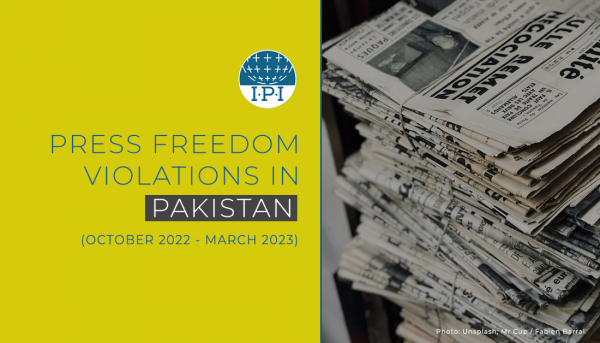Six days after the attack against columnist Kamran Shafi in Pakistan’s Punjab region, police have made little progress in bringing the perpetrators to justice.
Shafi’s house in the city of Wah was fired upon by unknown gunmen late on 27 November. Shafi and his family were inside the house at the time of the attack. No casualties were reported.
“The attack on Kamran Shafi’s house is deplorable as it was clearly aimed at intimidating him,” IPI member Owais Aslam Ali, Secretary General of the Pakistan Press Foundation (PPF) told IPI. “However, such attacks, which sadly have been occurring with disturbing regularity, have a chilling effect on all journalists and stifle debate on the vital issues facing the country, particularly those relating to the security situation in Pakistan.”
Shafi, a former army major, now a columnist for the independent daily Dawn, is an outspoken critic of the military’s influence over Pakistan’s civil leadership.
Shafi told news sources that, in the evening after the attack, a woman called his house asking to speak to the journalist. She warned,, “What happened to you last night was just the trailer… the complete movie will also be shown”. When the journalist asked about the reason for the attack, the woman said “you are not supposed to bite the hand that feeds you… if you are not careful about what you write, you will soon see the complete movie.”
In a column on 1 December, Shafi described the attack, saying that his house “was fired upon six times by a high velocity firearm, probably a Kalashnikov.” The journalist also added that he had not heard a vehicle driving away after the shooting, and that no bullets were left on the scene, suggesting that professional hit-men had been behind the attack.
Shafi expressed his suspicion that an ‘agency’ might be responsible.
A 17 November column by Shafi titled “Why not a civilian head of ISI?” has attracted several angry comments. The column pointed out that many intelligence agencies worldwide are headed by civilians rather than military officials, and called for civilian leadership of Pakistan’s Inter-Services Intelligence (ISI) .
PPF told IPI today that Shafi said he is still receiving blank calls from “private numbers“. He added that he and his family were provided protection by the Punjab authorities, who have assigned two policemen to Shafi’s house following the attack.
“We welcome the authorities’ efforts to ensure Shafi’s safety,“ said IPI Deputy Director Alison Bethel McKenzie. “In the long term, however, only the punishment of the perpetrators and an uncompromising fight against impunity in the country will contribute to halting attacks against journalists in Pakistan.“
“Those who attack journalists enjoy almost complete impunity, and unless the situation changes dramatically, Pakistani journalists will continue to suffer from increasing levels of insecurity,” Owais Aslam Ali commented, talking to IPI about the need for thorough investigations into attacks against journalists in Pakistan.
Pakistan continues to be one of the most dangerous countries in the world for freedom of the press, with journalists frequently being targeted for their work. According to IPI’s Death Watch, seven journalists have been killed in Pakistan in connection with their profession, since the beginning of the year.


